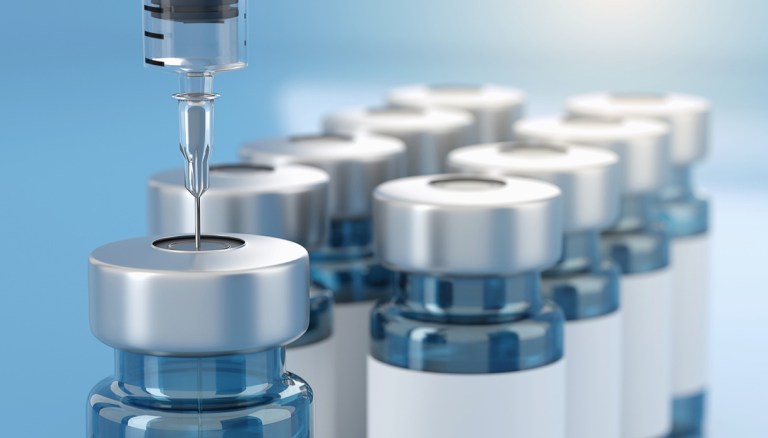There will be a lot of Italy, in the ampoules of anti-Covid vaccine that (hopefully) from this winter will be distributed in Europe and the rest of the world. Since the very first months of the pandemic, in fact, many pharmaceutical laboratories scattered along the Country have activated research and development programs for a drug that would help us to stop the spread of SARS-CoV-2. Close to Rome, for example, three different vaccine candidates have been developed: the first in the IRBM laboratories in Pomezia; the second in the ReiThera laboratories in Castel Romano; the third in Spallanzani hospital.
Anagni, instead, is preparing to become the European “capital” of anti-Covid vaccine production. In the chemical-pharmaceutical pole of the city there are some of the most important and technologically advanced plants in Europe. In two of them, millions and millions of ampoules of anti-Covid vaccine will be packaged for distribution throughout Europe. Italy, thanks to its chemical-pharmaceutical chain, therefore plays a role of primary importance in the fight against the new Coronavirus, both in terms of research and production.
Sanofi, 300 million ampoules produced in Anagni
Inaugurated last October 1st, the “anti-Covid” plant in Anagni is one of the flagships of Sanofi Italia. The opening of the production site was attended by the Minister of Health Mr. Roberto Speranza, the head of Sanofi Europa Mr. Francoise Sandre, the Undersecretary for Economic Development Mr. Giampaolo Manzella and other local politicians.
Sanofi decided to bring the production of the anti-Covid vaccine to Anagni for many reasons. The site is one of the most advanced in Europe and the world for the production of sterile injectable pharmaceutical products (liquid or freeze-dried, in ampoules or bottles).
To date, the plant boasts about 331 square metres of surface area dedicated to freeze-drying medical solutions (on a total surface area of 450 thousand square metres), with 12 freeze-dryers active 24 hours a day and equipped with all the necessary safety systems to avoid product contamination.
The production line is also characterized by very high safety standards. Each ampoules produced is photographed from 8 to 20 times, to verify (in a completely autonomous way) that it does not present defects of any kind. The Anagni plant will be the first in Europe to deal with the production of the anti-Covid vaccine that Sanofi has developed in collaboration with GSK and could start production phase 3 as early as December. From there to marketing, the step should not be too long.
Last but not least, the Sanofi plant in Anagni has a cogeneration plant that produces 50% of the electricity needed to operate it and thus reduces CO2 emissions into the atmosphere. The long-term goal is to make it energy self-sufficient and, for this reason, innovative energy efficiency projects are being studied for the entire facility.

Catalent has been chosen for the production of the Italian-British vaccine
Also in Anagni, will be produced the vaccine born in Pomezia in the IRBM laboratories and finalised in the UK by scientists from Oxford University and the pharmaceutical company AstraZeneca. In June, AstraZeneca signed an agreement with Catalent for the “finalisation” of the vaccine at their plant in Anagni where it will be “bottled” and canned, ready to be distributed.
Also concerning this production plant, we face with a state-of-the-art plant equipped with the latest generation of pharmaceutical machinery. The factory is specialized both in the sterile treatment of liquid medicines and in the packaging of finished products. This is one of the most technologically advanced plants of the US company, capable of completing the drug finalization process in just 48 hours.
